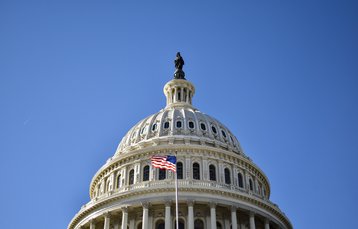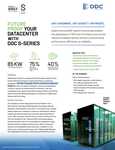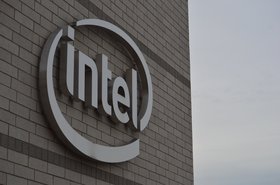President Donald Trump’s pick for commerce secretary, Howard Lutnick, appeared to offer some passive support for the CHIPS and Science Act during his confirmation hearing on January 29.
Trump has repeatedly criticized the effort to support domestic semiconductor manufacturing.
In response to questions from senators, Lutnick said that, while he wouldn’t unconditionally commit to something he hasn’t read, he would honor agreements that had already been finalized.
“To the extent monies have been disbursed, I would commit to rigorously enforcing documents that have been signed by those companies to make sure we get the benefit of the bargain,” he said, adding that the legislation functioned as “an excellent down payment in our ability to bring semiconductor manufacturing back to America.”
However, while Lutnick seemed to strike a much more favorable tone than President Trump, he also told senators that he believed a review might be needed to make sure “[the government gets] it right.”
A review potentially leaves the door open for the Trump administration to make wide-sweeping changes to the Act as currently, very little of the CHIPS Act funding has been distributed, in part because the financial incentives are tied to the completion of project milestones.
To date, companies that have announced investments in the US after being a recipient of CHIPS Act funding include Amkor, Samsung, Texas Instruments, SK Hynix, TSMC, GlobalFoundries, Intel, Micron, and GlobalWafers.
Lutnick is the chairman and CEO of Cantor Fitzgerald and BGC Group. Cantor Fitzgerald specializes in institutional equity, fixed-income sales, and trading for investment banking, prime brokerage, and commercial real estate firms.
His comments come several days after Trump announced he was planning to impose tariffs on foreign-made computer chips and semiconductors, claiming that this would be the best way to incentivize tech companies to manufacture chips in the US instead of Taiwan.
“[Chip companies] already have billions of dollars," Trump said. "They’ve got nothing but money, Joe [Biden]. They didn’t need money, they needed an incentive and the incentive is going to be that they’re not going to want to pay a 25, a 50, or even a 100 percent tax. They’re going to build their factory with their own money. We don’t have to give them money.”
Trump has consistently argued that the government should levy tariffs on the semiconductor industry instead of handing out grants and loans to chip companies. Tariffs are paid by the importer, not the exporting nation.







